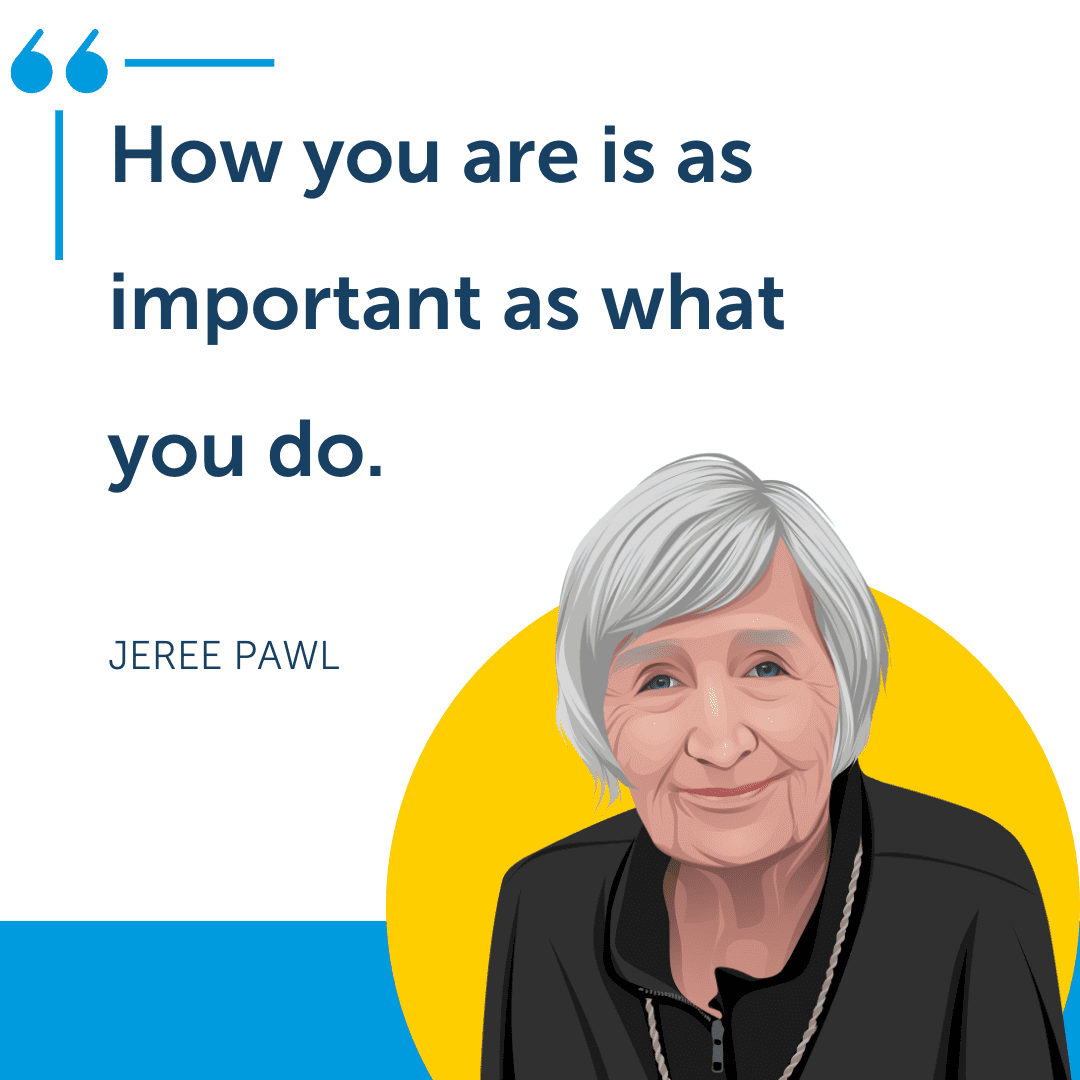
Lili Gray is a CPP National trainer since 2004. Gray is a member of the Child Parent Psychotherapy (CPP) Global Steering Committee and is partnered with the CPP dissemination team to create training content for CPP. Gray provides training, consultation, and development of strategies for professionals and systems using CPP in the context of working with families involved in the US child welfare system, working with parents struggling with substance abuse history, developing reflective supervision skills in providers and supervisors, and considering provider self-care and vicarious trauma. Gray is a presenter at WAIM Ireland 2023, ZTT 2023. Gray is a fully credentialed Pilates and Yoga & meditation instructor and enjoys competing in dog sports with her two long haired dachshunds.
We've all heard the mantras.
"Being with. Do unto others as you would have others do unto others, How you are is as important as what you do."
Sometimes I wonder if these deeply held convictions we share and hold close to our hearts- are at risk of becoming jargon’ Jargon is when we quote them without understanding, describing, and aspiring to embody them in ourselves and our work. But that takes time, self-awareness, reflection, and relationships — things sometimes in short supply in our settings where other pressures reign.
“Being with,” at is essence, requires us to be with ourselves first. How do we get to know ourselves and hold ourselves in compassion and curiosity? It’s a lifelong experience. Where do we even begin? It is more than just checking in with ourselves.
Who are we?
In my own clinical work "being with" means entering the relationship with no agenda of "fixing" or "getting the caregiver to…".
For me, it means showing up with my whole self, my professional self-present, self-regulated and engaged self. It means being curious, respectful and filled with awe for the person willing to share their story and their journey with me in this moment. My role, as I understand and strive to embody it, is for others to feel seen and heard by me. That means I strive to listen deeply with the intention to understand (and to resist the urge to change or offer advice).
How can we ask ourselves to “be with” someone else when we may not yet know ourselves deeply? It seems that is the first task — to become curious about us! Being with ME starts by wondering why we react the way we do. Who are we, who do we hope to become? What are our strengths and what are the areas for growth? How can we grow our humility? What is the nature of our own suffering, our own joys? What things speed us up? What feels too big and hard to hold? (None of this is a one-time exploration and as we commit to ongoing learning and self-growth).

How do we integrate it into the work?
Let's take a moment to reflect.
- Can you think of a time when you felt deeply understood by another?
- A time when someone really listened and honored your experience?
- Where do you feel this in your body?
- Can you think of a time when you had the opposite experience? Where does that memory live inside you?
- What do you imagine the differences were in those two experiences?
It’s likely both people had good intentions toward you. But one felt powerfully positive, and one didn’t. How can we as providers aspire to land in the “positive” experience category? Of course, we won’t always get it right but then we will have beautiful opportunities for repair.
I think "being with" is a little like a delicious chocolate cake. We all know what it should taste like, but it’s not as easy to make it yourself. The wonderful bakers on our favorite baking programs make it look so simple, but it’s not so easy to re-create in our own kitchen.
“Being with,” like our cake baking, should probably start with a recipe. So, what should be in our “cake?” Let’s go back to that memory-what is in the mix when we feel understood? Did you notice in your story the listener didn’t try to tell you what to feel or do next- they didn’t try to “fix” you or move you from your feeling onto another one? They may have resisted the urge to “do something.”
They likely let you take all the time you needed to talk about your feelings and the situation. They didn’t rush you to a solution.
They probably paid attention (they didn’t look at the phone, clock or TV) and maybe even leaned in and made eye contact. They embodied self-regulation by giving you the unspoken message that your suffering is not too much for them because how you ARE is as important as what you do.
It may be they didn’t take your suffering on as their “problem to fix.” Their identity was not as a fixer or expert in your life.
They likely understood that their own experiences were not relevant to share during your hard time and could hold context for your lived experience being different and unique. We often refer to this as cultural humility.
Let’s review our ingredients:
- Self-awareness
- Preparedness
- Self-regulation
- Cultural humility
- Attention without urgency
- Beginner mindset
- Compassion for self and others
- Awareness that solutions flow when we feel understood and supported by others
Now that we have the basic ingredients of the recipe of “being with,” how do we mix them all together to get a delicious outcome?
But wait! What if we are low on some ingredient? Reflective supervision is a wonderful pantry full of ingredients we need for Being With (and other things). One of the marvelous aspects of reflective supervision is that it helps us to know ourselves in the service of showing up with our clients in a regulated, compassionate way.
So, the ingredients and the tools are ready- we can now cook up our own unique recipe, and every one, like every client interaction and relationship, with have it’s own unique flavors and outcomes. We can always revisit, revise, and add to ingredients as our skills as a baker (provider) grow.
Take your reflective supervision and consultation to the next level.

